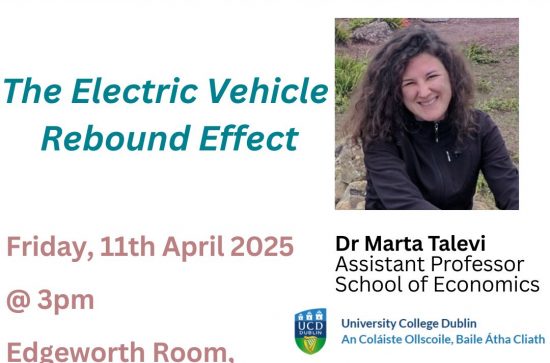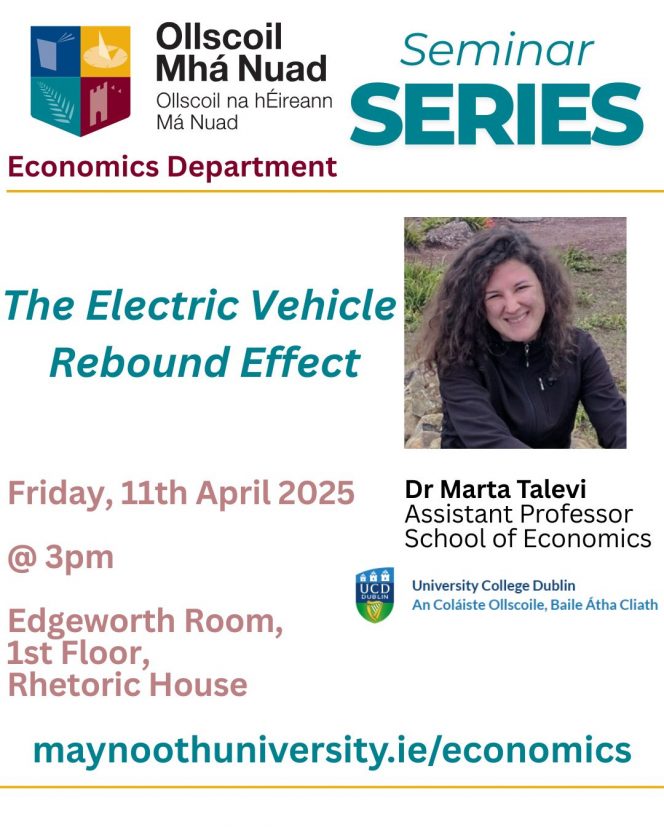
We hope you can join us at our Seminar Series in Economics on Friday 11th of April at 3pm. We are delighted to welcome Dr Marta Talevi, Assistant Professor in the School of Economics in UCD to present her Seminar on The Electric Vehicle Rebound Effect
Title: The Electric Vehicle Rebound Effect
(Kenneth Gillingham, Beia Spiller, Marta Talevi)
Abstract: In this paper we look at how households adjust their total driving and the allocation of driving between fuel types in response to the purchase of an electric vehicle (EV) and in response to changes in gasoline prices and electricity rates. As EVs are substantially cheaper to drive per mile than internal combustion engine (ICE) vehicles, a rebound effect may occur after a household purchases an EV if the savings in operating costs are then reallocated to increase total VMT – either through the ICE or the EV itself. We use detailed information on the composition of households’ vehicle portfolios in Massachusetts (from registration data) and the miles driven by each vehicle over time (from inspection data) to perform an event-study and difference-in-difference analysis combined with propensity score matching for the likelihood of purchasing an EV. Purchasing a new vehicle, no matter the fuel type, may be a response to an increased demand for driving and may also result in an increase in driving linked to the novelty effect. We therefore parse this effect by comparing driving patterns before and after the purchase of an ICE and an EV. To estimate the rebound effect linked to changes in electricity prices, we then use a regression discontinuity design (RDD) around the borders of utility catchment areas, to capture the variation in electricity rates and in the time of their adjustments between utilities. We then estimate an additional source of rebound effect linked to changes in gasoline prices for households with and without EVs, using a fixed effect model and instrumenting for the price of gasoline using the price of crude oil in the international markets. While there is a large literature estimating the rebound effect within the context of ICE vehicles, applying estimates of the rebound effect obtained from these studies would be inappropriate as the difference in cost per mile is substantially more pronounced when we compare an EV with an ICE than from an increase in gasoline fuel efficiency. Moreover, the degree to which EVs and ICEVs are substitutable in the eyes of consumers is an empirical question.

